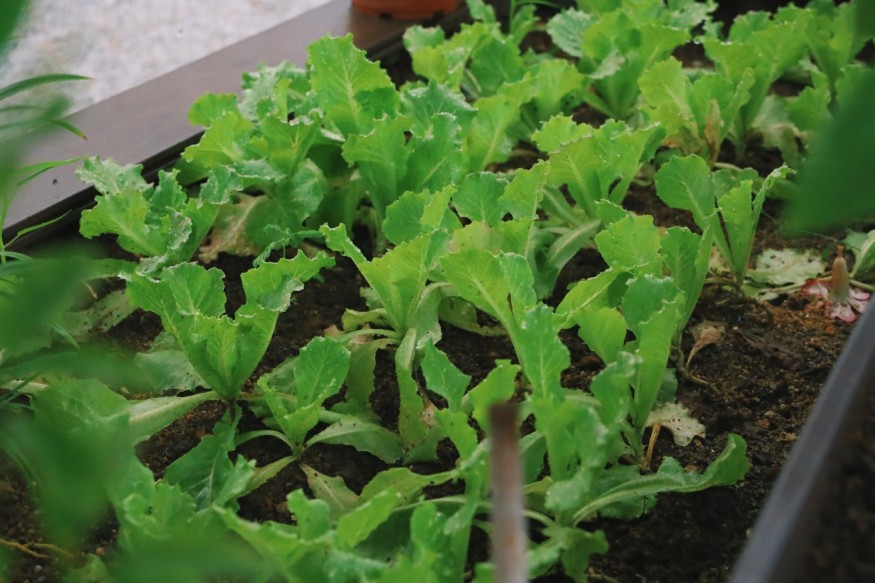
According to a study, encouraging the healthy interaction between plants and microorganisms could lessen the need for fertilizers that harm the environment and increase agricultural yields.
Improving Crop Yields by Bacteria
Scientists are eager to contribute to the promotion of plant growth naturally and sustainably as population expansion and crop production are threatened by climate change.
Researchers from the Universities of Warwick and Justus Liebig in Germany have today demonstrated a novel strategy for enhancing plant nutrient uptake and growth in a study published in Microbiome.
This would lessen the demand for fertilizers, an agricultural input that could be bad for the environment. .
Fertilizers have the potential to release the strong greenhouse gas nitrous oxide into the atmosphere by dissolving in soil or entering streams.
The research team looked into the effectiveness of symbiotic or nodular partnerships between plants and bacteria, as well as how this natural occurrence affects interactions with other soil microbes.
Legumes, including peas and beans, collaborate with symbiotic bacteria called rhizobia, which "fix" nitrogen from the air and supply it as nutrients to the plant.
These bacteria can assist plants in acquiring nutrients from the soil to promote development or build stress resistance.
Due to these characteristics, legume crops are mostly independent of the use of chemical fertilizers and provide a sustainable agricultural method for producing food.
Legumes can interact with a variety of rhizobia species, but the success of this interaction depends on the soil type and the bacteria's capacity to fix nitrogen or the symbiotic efficiency, according to Phys Org.
Biofertilizers Instead of Fertilizers
The Biotechnology and Biological Sciences Research Council (BBSRC) funded the study, which examined the effects of various symbiotic efficiency on influencing plant growth and nutrition as well as other soil microbes that may act as "biofertilizers" to improve plant and soil health.
The research was conducted using a relative of peas and beans that can interact with various kinds of nitrogen-fixing bacteria on a variety of soil types.
The team assessed the plant's molecular reactions and mineral content using various bacteria strains.
Various areas, including the soil, the area around and inside the root, were used to document the bacterial and fungal communities.
Knowledge of the effects of "symbiotic efficiency" was formed by merging all of these different types and locations of data.
Symbiosis Between Plants and Bacteria
According to Professor Patrick Schäfer of Justus Liebig University in Gießen, Germany, symbiosis with a highly diverse population of microbes on the surface of roots has a significant role in plant growth and fitness.
As per Schäfer and his team's study, beneficial rhizobia, which fixes atmospheric nitrogen in exchange for nutrients with legumes, is affected by the nutritional condition of the soil.
Dr. Beatriz Lagunas, a co-author of the study from the University of Warwick's School of Life Sciences, stated that their research showed how symbiosis with various bacterial species could alter the entire root microbiome.
Their team discovered that nitrogen-fixing bacteria can, depending on their surroundings, install a microbiome that is advantageous to plants.
They also discovered microbial strains that could one day function as beneficial, environmentally friendly fertilizers.
Professor Miriam Gifford from the University of Warwick's School of Life Sciences added that this finding has critical ramifications for the use of such nitrogen-fixing bacteria to ensure the field production of vital food legumes like beans and peas.
Following this research, the team is currently examining how microorganisms affect various plant species to assess plant development and stress resistance.
To assess the effectiveness of using these bacteria as biofertilizers for the growth of legumes, the team hopes to work in partnership with agricultural businesses.
This could help reduce the usage of chemical fertilizers and their negative effects on the environment, Vertical Farm Daily reports.
The study, done by Lagunas, Schäfer, Gifford, and several team members, was recently published in the journal Microbiome.
Related Article : Buffalo Zoo Converts Excess Animal Poop to Robust Compost
© 2025 NatureWorldNews.com All rights reserved. Do not reproduce without permission.





